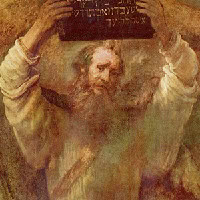The Rabbinic Mind and Divine Law
What does it mean to say that a text is divine and the norms it teaches are divine? Attributing divinity to a normative system or law would appear to establish its authority and justify our fidelity to it, but how and why does it do so? What traits do we suppose a law possesses when we refer to it as divine and why do we suppose that those traits will establish its authority and justify our fidelity?

Led by Yale professor Christine Hayes, this course traces the radically divergent conceptions of divine law that emerged in biblical Israel and in ancient Greece: For the Greeks, divine law was divine because it was rational, allied with truth, and static. In biblical Israel, divine law was divine because it issued from the will of a divine being which can be arbitrary, override “truth,” and evolve.
These conceptions collided in the Hellenistic period, creating a cognitive dissonance for ancient Jews who felt compelled to negotiate the claims of both traditions. After briefly surveying the solutions of some ancient Jews who tried to read biblical divine law as if it were Greco-Roman natural law, we will enter into the “talmudic workshop” to see how the rabbis managed the tension between these dueling conceptions of divine law. Their labors gave rise to a conception of divine law that was scandalous to outsiders – and perhaps even to themselves. How did they come to see the authoritative divine law as sometimes divorced from truth and rationality, and as evolving rather than static? And what do we gain or lose if we view Torah one way rather than the other?
Following the rise of philosophy in the medieval period, the unique rabbinic conception of divine law was obscured . We will “excavate” this conception and consider what it might contribute to the way we think and talk about law and the assumptions with which we read Scripture to the present day.
